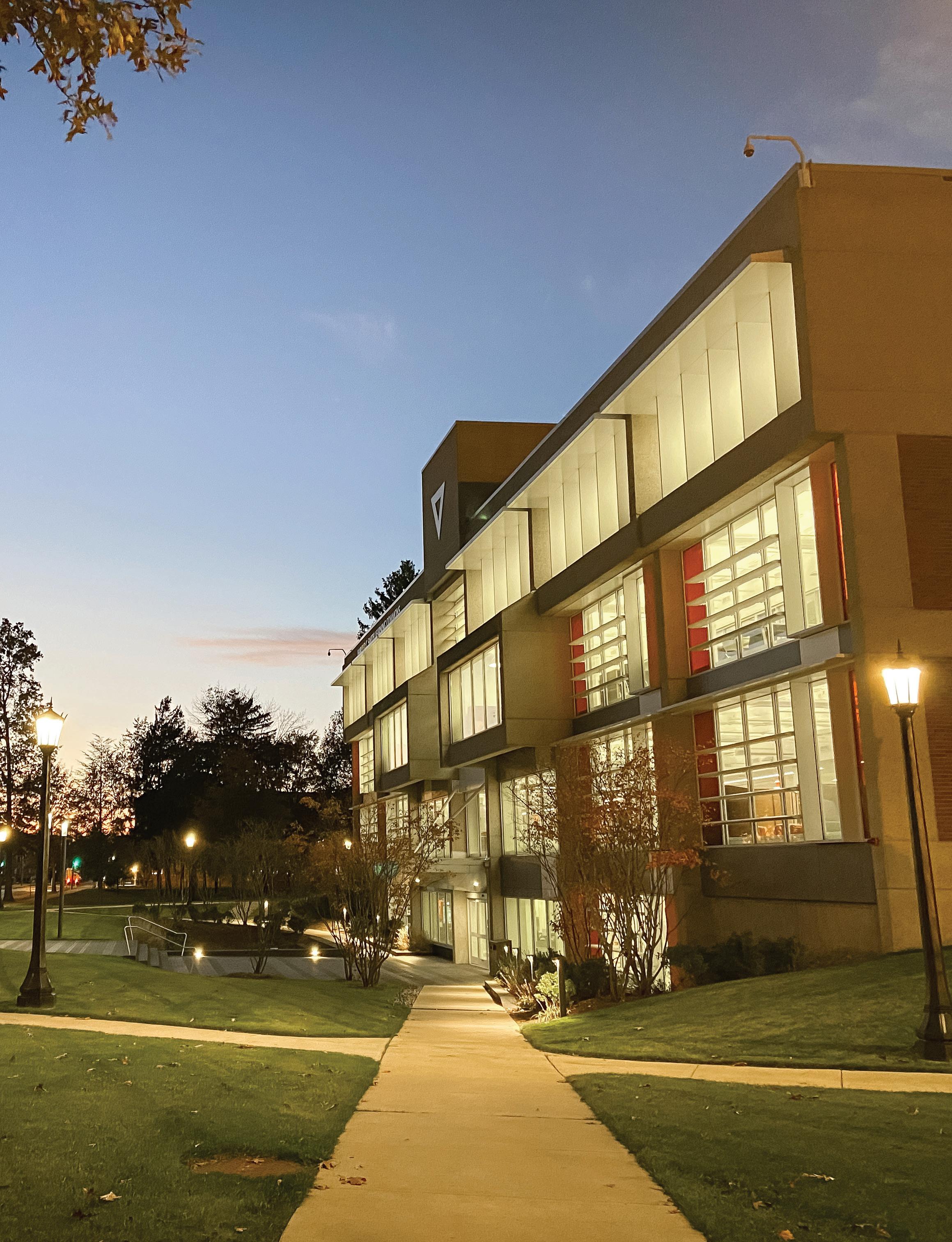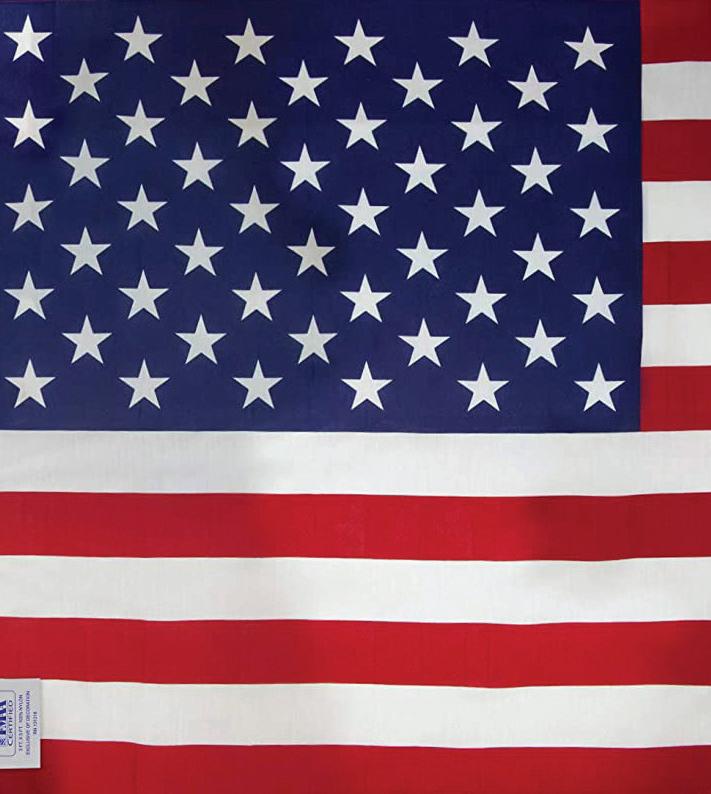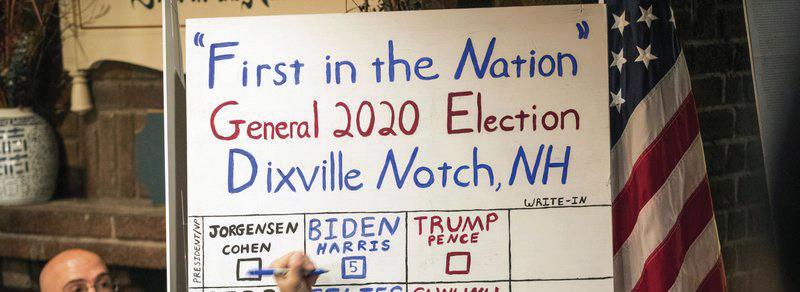
12 minute read
Mary-Beth Cooper’s take on the election
Q+A with President Cooper
Springfield College’s President is pleased to witness a high amount of student engagement in the election.
Advertisement
By Danny Priest @dpriest3
While the fate of the 2020 Presidential election looms large over the nation, the determination of a President for Springfield College was seamless just days prior to the big election.
On Oct. 28, Springfield College announced that the Board of Trustees had voted to extend President Mary-Beth Cooper’s contract through 2025. Cooper, the 13th President in college history, has now been with Springfield for eight years.
The newest election will carry through Cooper’s extension, and while being the President of a small college doesn’t compare to running an entire country, Cooper did provide some insight on the 2020 election.
“Luckily, I didn’t have to be elected by an Electoral College, so I’m fortunate we don’t have that in common,” Cooper joked in regard to the 2020 election.
On a more serious note, Cooper talked about how the roles of President for a college and a nation obviously possess vast differences, but both have had to handle a tumultuous past eight months.
“He’s been dealing with the virus and so have I, his population that he is responsible for is far greater than mine -- mine, however, is more intimate and I know my constituents better than he might know his,” Cooper said.
“I do think we both have experienced roller coasters in terms of making difficult decisions about the virus in particular, and he is up for re-election and in the process of that, they extended my contract. So, in some ways, there are some similarities.”
Being a President comes with numerous expectations and they receive constant attention -- both positive and negative -- at all times. Cooper touched on the fact that being President comes with a certain level of carefulness and responsibility.
“You have a lot of people that are watching you, so wearing a mask, making the right decision, every opportunity that I have with students, whether President Mary-Beth Cooper addressing the campus community last spring. (Photo Courtesy of Evan Wheaton/The Student)
it’s email or face-to-face interaction -- it may be the only interaction I have with them -- I try to be as present as possible.
“We saw that with all of the issues around social justice this year and students wanting to be heard, I would say as a leader, listening to your constituents and responding and being a decision-maker, are things that I believe are apparent,” Cooper said.
She added that communication is vital, especially in times of uncertainty with the Coronavirus constantly changing by the day and affecting plans.
“I don’t know how often students, parents, faculty and staff think about the amount of time we put into correspondence, but sometimes it’s hours,” Cooper said.
“To get the right words and the right tone, the numerous emails that I have sent out since March 17 were carefully drafted... because people are looking for answers and they are looking for someone to respond to them. I think that’s an important thing for a leader - to understand the impact of [the] written word.”
Right now, between COVID-19, social justice and a host of other issues - the United States has a lot going on and remains quite divided. A strong and able leader is a big part of getting the country on track for a bright future.
“This (election) has been particularly concerning to me in terms of how they address each other. That makes me sad, as a citizen,” Cooper said of the race between Biden and Trump.
“I hope there is some healing that happens with whoever the President may end up being that gets people interested in running for public office so that we have plenty of options as voters. We (need) to put some civil behavior back into public discourse and debate about significant issues for citizens.”
For the most part, members of the campus community went out and did their part in this election by casting votes. The urgency regarding voting this year by the community is a source of pride for Cooper.
“I’ve been trying to track the numbers in terms of voter participation at the college level and there’s not any information currently out there, but we do know that overall the voter turnout has been a record,” she said.
“I do think watching our students...encouraging people to get out and vote, I don’t know that I’ve experienced that here or elsewhere in other elections.
“I would just say to students to continue that civic engagement moving forward and you will have more choices. The more engaged students become, the more their voice is going to be heard. It’ll be interesting to see if they’ll be able to break that down, even with all the barriers. I haven’t seen this level of student engagement in terms of voter turnout in decades.”
Staff Reports @TheSpfldStudent
On Friday, Oct. 30, Springfield College announced to the campus community that they will begin a shelter-in-place period as a result of continuing surges in positive coronavirus cases on campus.
The official shelter-inplace begins immediately and will run until Monday, Nov. 9.
The news came via an e-mail that was sent to the campus community at 12:03 p.m. The e-mail stated:
Despite our best efforts, the recent increase in COVID-19 cases and contacts has exceeded our structure for managing the virus. Our quarantine and isolation spaces are at maximum capacity. With the uncertainty of future cases and our commitment to maintain the safety of our campus, we have made the decision to accelerate our planned switch to remote learning now through the end of the semester and establish a one week shelter-in-place protocol for students on campus.
Also in the e-mail, President Mary-Beth Cooper offered some initial thoughts to the campus community.
“This is not what we wanted. There is no one to blame for our current situation. Everyone has worked so hard to remain on campus and to reach our November 20 goal. The reality, though, is that we need to take the actions to avoid undue risk for members of our community. We need to act quickly and decisively to de-densify our campus to stop any further spread of the virus within our community,” she wrote.
“The fall semester has
Going virtual, again
After more COVID-19 cases, Springfield College opted to complete the fall semester virtually and ordered a “shelter in place” period.
Students are forced to attend classes remotely on Zoom. (Jack Margaros/The Student)
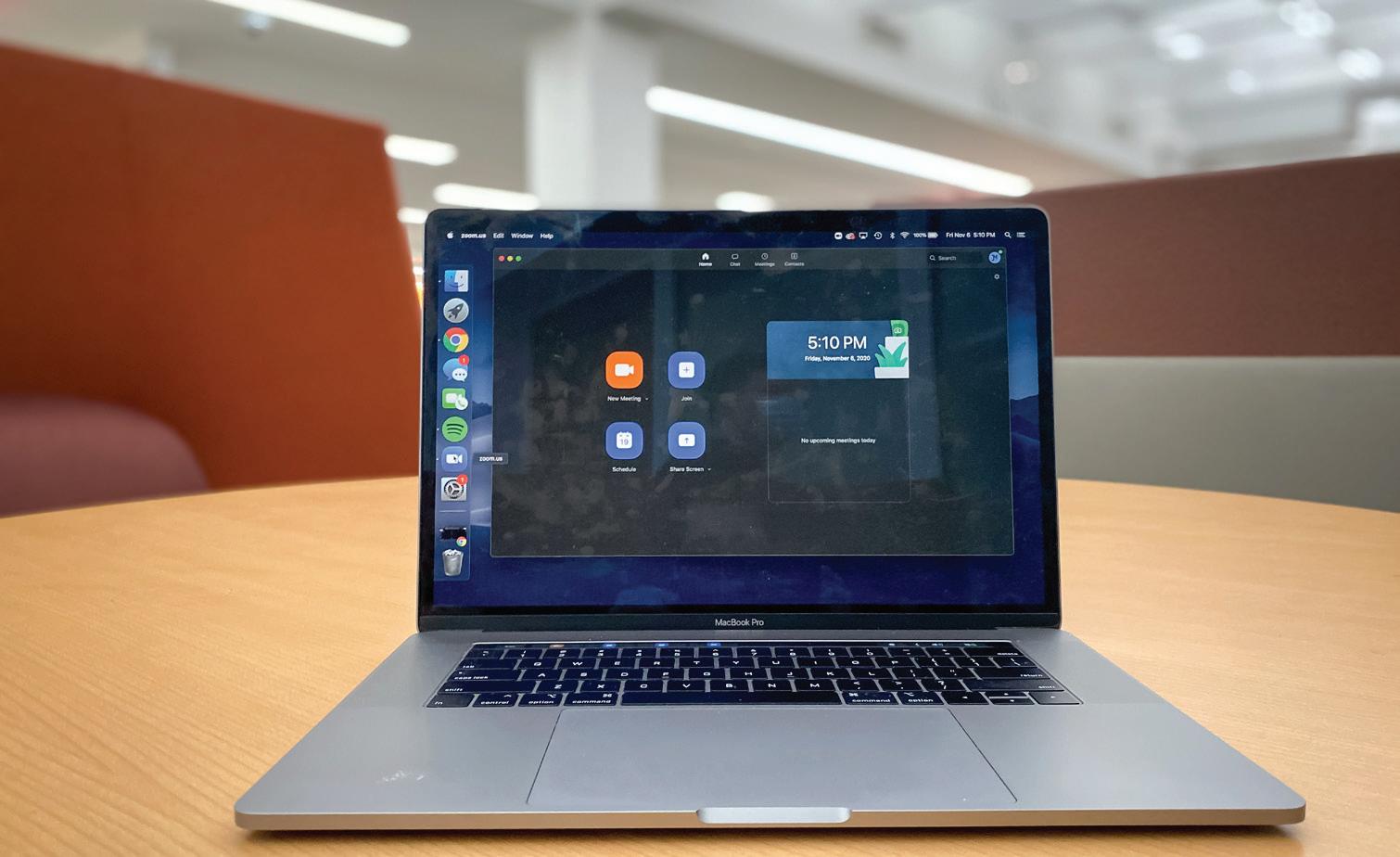
brought a great many challenges, but I have been consistently heartened by the connections that you have made with each other and with the faculty and staff who are so committed to your success. It is the very best of Springfield College.”
Students now have a decision before them. If they choose to remain on campus they will be required to remain in their residence halls and continue following social distancing and mask guidelines.
No dining will be allowed in Cheney, only grab and go meals will be available. Scheduled testing will continue at the Health Center. The Learning Commons first and second floor will stay open as 24hour study spaces.
If students stay on campus, they may still go outside to exercise, but they may not do so in groups larger than two people.
All classes will be remote (with the exception of pre-approved labs), athletics are suspended until further notice and and co-curricular activities will also be on hold. Students may leave campus for medical emergencies, student teaching, clinicals and off-campus work.
Should a student opt to return home, they will not be allowed to return to campus until the spring semester starts in January. If students intend to move out and bring all of their belongings home, they will have until Sunday, Nov. 1 at 6 p.m. to notify Residence Life if they wish to leave, and they must return home by Monday, Nov. 2 the latest.
The move-out process will be staggered, similar to as it was in August for move-in period. The e-mail also included important details regarding what happens if a student moves out.
“If you remove all of your belongings from your residence hall room (even if you have returned home already for quarantine or isolation), the College will provide a pro-rated refund (three weeks) for paid room and board charges. Adjustments will also be made to non-merit based financial aid to account for the reduced time on campus. We will guarantee you housing for the spring, as near as possible to your current space. The pro-rated refund is offered only to students who move all of their belongings out as we may consolidate students who remain on campus and will use the vacated rooms. No refunds will be given if you leave belongings in your room, if you do not notify Residence Life of your intention before 6 PM on November 1, or if you do not move out by the end of the day on November 2.”
Another important note is that class registration for the spring has been pushed back to the week of Nov. 9, rather than the initial date of Nov. 2.
Vice President for Student Affairs Patrick Love also shared some additional comments to The Student.
“We are hoping, our intention here, for the safety of the community. is to arrest the spread of this virus. So, basically shutting down, and trying to have as little contact amongst students on an intensely populated campus as we can have, knowing that over the next several days, there will be an increase numbers of positives, because the virus is already out there, we’re testing people, we’re going to find it,” Love said.
“The hope is that after five or six days, we’ll start to see the decline, because of students being in less contact with each other, and with a less densely populated campus assuming that there will be a number of students that choose to go home. We’ll make a decision, later next week,” he added.
Spirit, Mind and (No)body Because students were ordered to shelter-in-place, many returned home, leaving campus desolate.
By Irene Rotondo @irenerrotondo
Devoid of life, Springfield College’s campus now sits in silence in the midst of its Fall 2020 semester.
It’s an eerily similar scene to just a few months back in March, where students were rushed from their dorms back into the safety of their homes, lest they contract the Coronavirus.
Students were informed the rest of their semester would be online on October 30, 2020 at noon. President Mary-Beth Cooper stated in her email to the campus body, “Despite our best efforts, the recent increase in COVID-19 cases and contacts has exceeded our structure for managing the virus. Our quarantine and isolation spaces are at maximum capacity. With the uncertainty of future cases and our commitment to maintain the safety of our
Springfield College instituted a shelter-in-place order on Oct. 30, and will conclude on Nov. 9. (Joe Arruda/The Student)
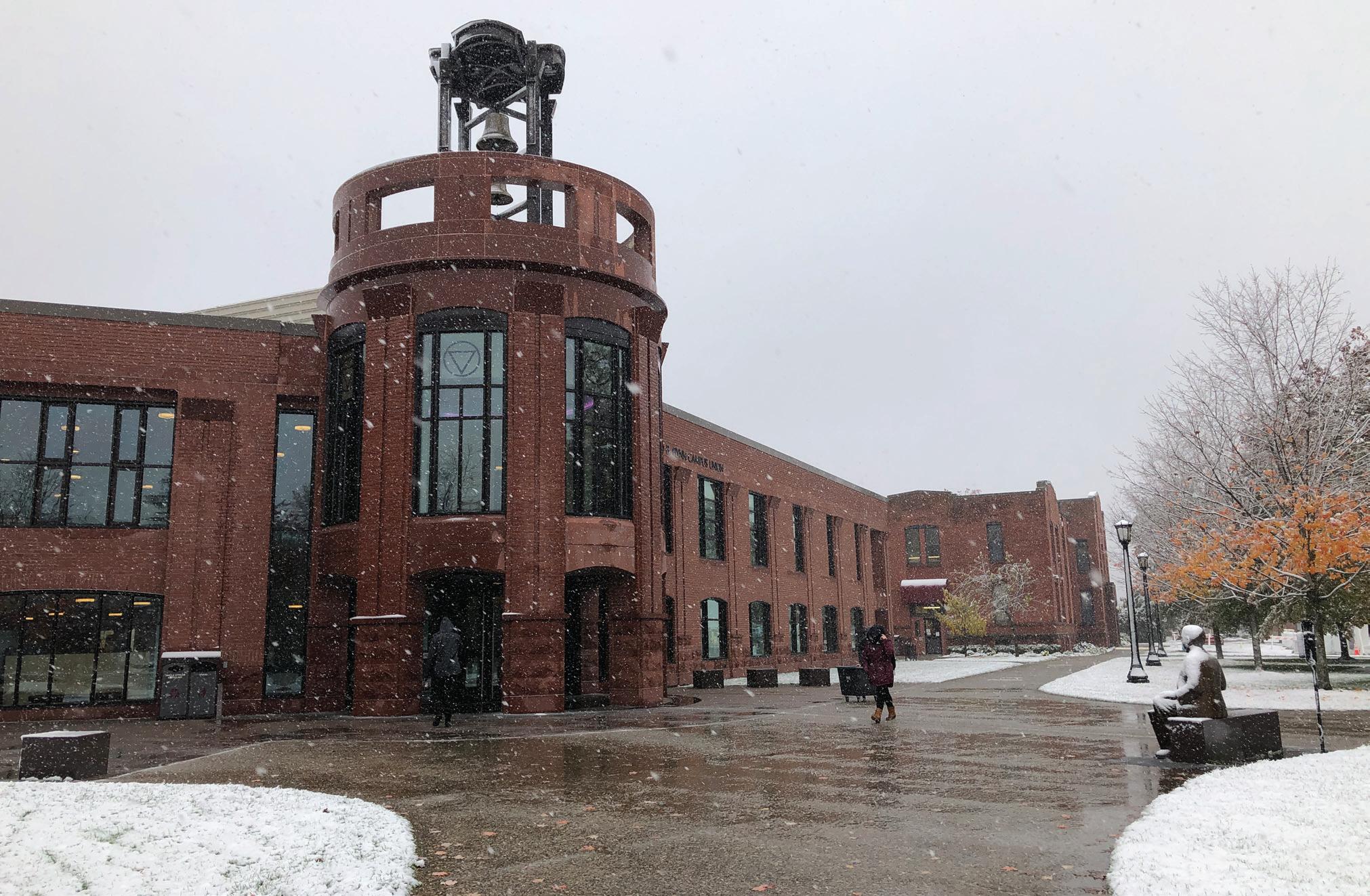
The news rocked every single person connected to Springfield College’s world. Of course, the shelterin-place protocol and switch to remote learning wasn’t exactly unexpected -- cases have been climbing rapidly over the past few weeks on campus, various dorms have been in and out of quarantine periods, and other colleges and universities have been going online.
It was only a matter of time until the seemingly impermeable campus was officially under COVID-19 regime.
However, expected the event may have been, there was no way to lessen the blow of yet another semester coming to an early end; students had been feeling the dark cloud of possibility for remote-learning over their heads for weeks, and their worst fears had been finally confirmed.
The majority of students returned home -- while there isn’t an exact estimate of those still remaining on campus, it’s clear to anybody who is still there
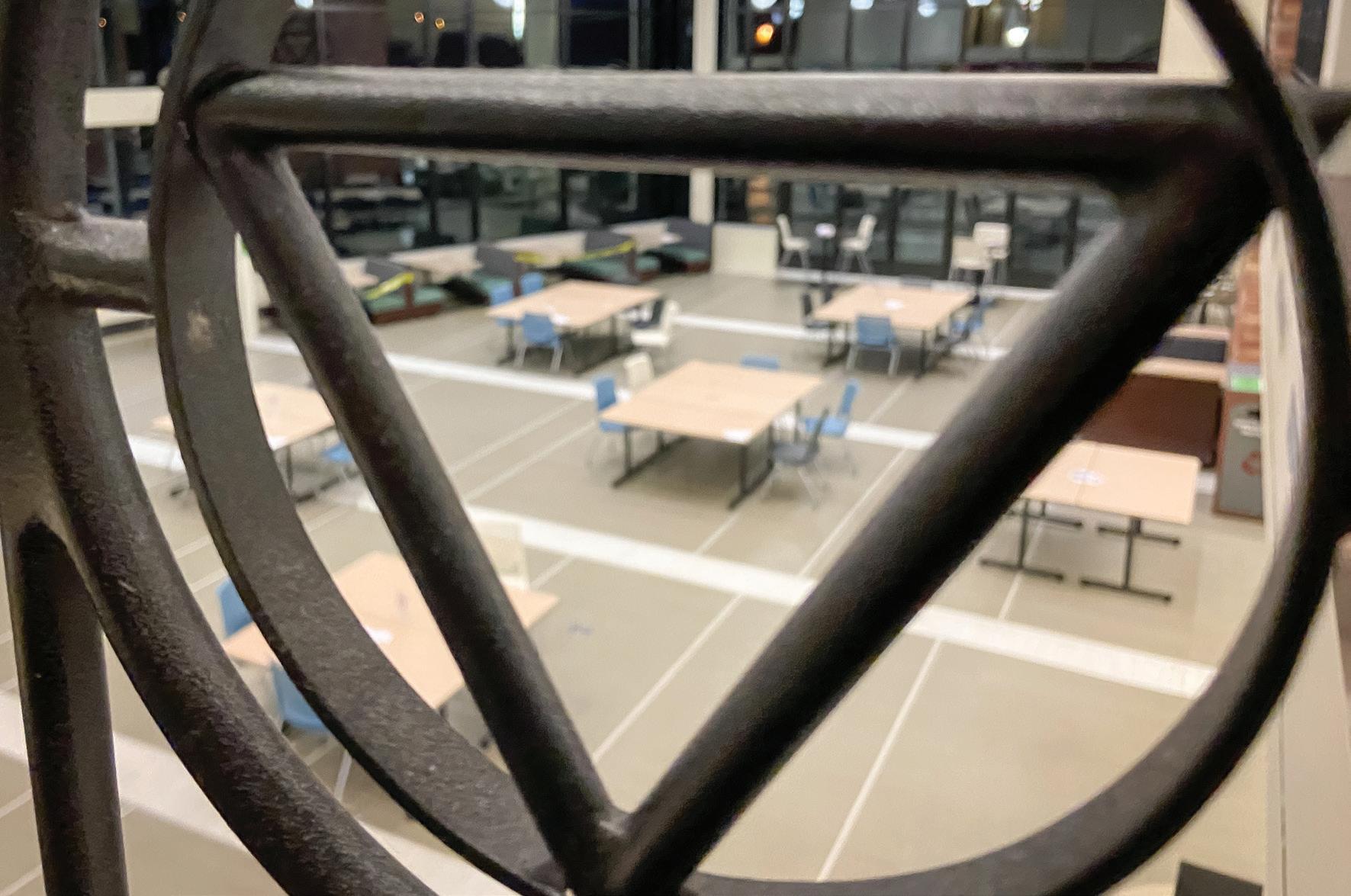
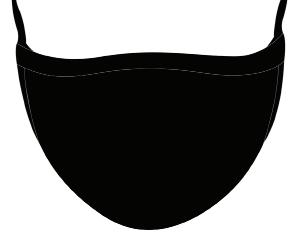
just how many students are gone.
One could feasibly walk all the way from International Hall, across campus, and to the Townhouses and Suites, without seeing more than two other people.
The large white tent seated in the center of the Admin Green is dark inside without tables or computers, every parking lot boasts dirt and empty spots, and buildings that are usually full of life now stay silent and cold.
For those who chose to remain on campus, life really has been any- Students are not allowed to eat or drink inside of the Campus Union. (Irene Rotondo/The Student) thing but normal. Students are not allowed for grab and go dining lance testing has been week. bringing home all of inside any buildings on only. This means all continued as scheduled Fortunately, there their belongings, and campus (including the food from Cheney and for those on campus, have been no recorded attempting to at least Wellness Center) other the Union must be with students arriving cases of COVID by come to terms with anthan the Learning taken back to students’ at the outdoor testing Springfield College other college semester Commons, Cheney Din- dorms or eaten outside. site in their particular since the students being ripped away. ing Hall, and the Union COVID-19 surveil- time slot every other returned home. Those Needless to say, who tested positive it has been a very prior to the shutdown rough fall semester for are still currently in Springfield students. quarantine either at The one thing that will their homes or on set them apart from campus. students at other col-
“To top it all off, leges is their undying the 2020 Presidential resilience and drive to Election began Nov. do well. 3. As one of the most Springfield Col-
ONE COULD FEASIBLY WALK ALL polarized and conse- lege students come
THE WAY FROM INTERNATIONAL HALL, ACROSS CAMPUS, AND TO THE TOWN quential elections in U.S. history, it’s a given that many students from backgrounds of strength and high morality, and these at-
HOUSES AND SUITES, WITHOUT SEEING had planned on voting. tributes have only been
MORE THAN TWO OTHER PEOPLE.” For some, it was also the very first elecsolidified by their core pillars of Spirit, Mind, tion they were eligible and Body. If anyone to vote in. Stress levels can endure the insanwere already high to ity, it’s Springfield begin with, and stu- College students. dents were tasked to choose the next leader of their country, while
